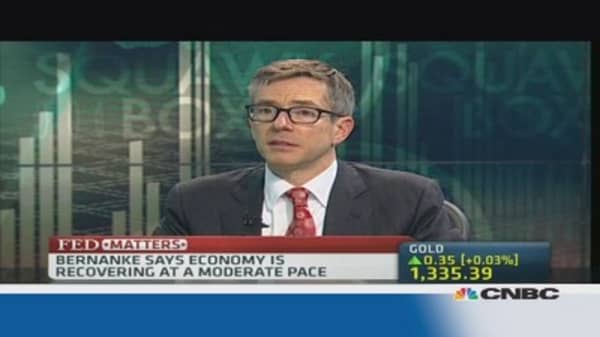The Federal Reserve chairman is driving markets with 'open mouth' operations, which are just as effective as 'open market' operations, former Fed governor Randall Kroszner told CNBC.
Comments from Fed chief Ben Bernanke have sparked wild swings in financial markets over the past two months, with investors scrutinizing Bernanke's words closely to work out the possible timing of an unwinding of the central bank's $85 billion-a-month asset-purchase program.
(Read More: Market's 'overreacted' to taper, ex-Fed chief says)
"The open mouth operations are just as effective as the open market operations," said Kroszner, referring to central bank buying or selling of government bonds.
"Look what happened [after the June Fed meeting]. The chairman opened his mouth and didn't make any change to the open market operations or [asset] purchases and said we might do something, and the markets went wild," added Kroszner, who is professor of economics at the University of the Chicago Booth School of Business and served as a Fed governor and a voting member of the Federal Open Market Committee between March 2006 and January 2009.
Comments from Bernanke in May and June suggested that Fed monetary stimulus could be unwound this year dealt a blow to risk assets and sent government bond yields higher.
(Read More: Has Bernanke perfected balance between hawks and doves?)
But last week, Bernanke eased market jitters, using a semi-annual testimony to Congress to reiterate that U.S. monetary policy was likely to remain "highly accommodative" for the foreseeable future.
Those comments have helped contain a rise in Treasury yields, which analysts say is important to keeping the economic recovery on track since Treasurys affect the interest rates on fixed-rate mortgages.





